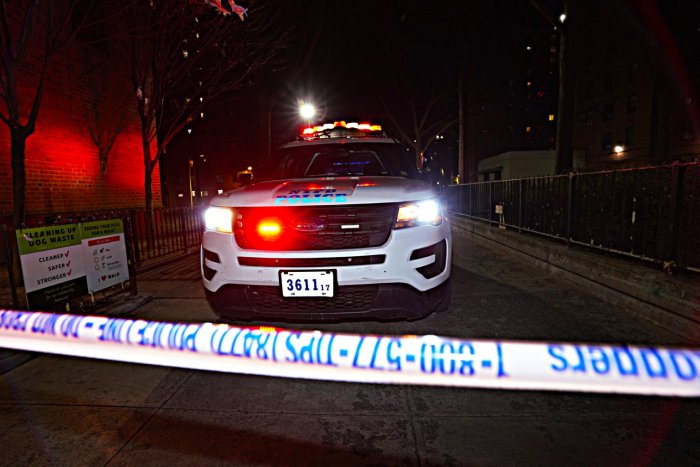By Adam Kramer
As the fear of contracting anthrax spreads across the country, Queens hospitals have gone on high alert in preparation for treating any of the borough’s 2.2 million people who might come in contact with the deadly disease.
As of press time there were no cases reported in the borough.
The disease, an acute infection caused by bacteria and their spores, is commonly found in sheep, goats, camels and other herbivores, but in the past few weeks 13 people in the United States have contracted or have been exposed to the disease.
An NBC staffer who works for anchor Tom Brokaw in Rockefeller Center was diagnosed with anthrax on Oct. 1. A letter opened this week in Senate Majority Leader Tom Daschle’s (D-S.D.) Capitol Hill office was carrying bacteria or spores for the potentially deadly disease.
The most recent case of anthrax in the city involved the 7-month-old son of an ABC news producer.
The 18 hospitals, which are part of the North Shore/Long Island Jewish Health System throughout Queens and Long Island are on “heightened awareness,” said Elaine Wohl, a spokeswoman for the hospital. She said the hospital system is continuing to educate all of its physicians about anthrax symptoms.
“In conjunction with state and local officials we have surveillance teams in place to identify unusual disease clusters or manifestations that might identify anthrax,” she said.
Similar to North Shore/LIJ other Queens Hospitals — New York Hospital Medical Center of Queens in Flushing, Jamaica Hospital and Flushing Hospital— are giving priority to people coming into the emergency room complaining of symptoms of the disease.
“Dropping the disease over a city or a town would take a very sophisticated attack because a large number of spores need to be inhaled to infect a person,” said Dr. Lorry Rubin, chief of pediatric infectious diseases at Schneider Children’s Hospital in Glen Oaks and part of the North Shore/LIJ system.
He said there was no way to be sure the bacterial spores would spread out over the area and not stick together. This makes an attack difficult and not very likely to happen, Rubin said, but “that is not to say it cannot happen.”
“The reason people are scratching their heads to figure out why one person gets sick and another who was exposed does not is a function of the number of spores of the disease inhaled,” Rubin said.
Anthrax cannot be transferred from person to person, he said, so a family member of someone who comes into contact with the disease does not need to worry about getting sick.
“The hospital is on heightened alert,” said Cynthia Miska, a spokeswoman for New York Hospital Medical Center of Queens in Flushing. “The hospital is ready for anything. In case of some sort of disaster, we are prepared.”
She said NYHQ was following precautions as were all of the hospitals around the city and it has been monitoring all the recent outbreaks of the disease. The infectious disease department is in constant contact with the state Department of Health and the Center for Disease Control in Georgia, she said.
The infectious-disease specialists at NYHQ have instructed the emergency room personnel how to recognize the signs of anthrax. If somebody is diagnosed with the disease, she said, the hospital has the necessary medicine, the antibiotic Cipro, to treat anthrax.
NYHQ has a separate decontamination room located off the ambulance bay at the emergency room equipped with showers and a separate water supply. Miska said a contaminated person can be brought directly into the chamber without ever coming into contact with the general patient population.
As of Tuesday afternoon there were more than 120 calls to the Police Department on anthrax around the city and about 35 packages had been recovered with none testing positive for the disease.
Michael Hink, a spokesman for Jamaica Hospital, said the staff was consulting with Flushing Hospital and Brookdale Hospital in Brooklyn to make sure that all three were prepared to treat the disease.
“The hospitals are working on material to distribute to the physicians in the areas surrounding the hospital to teach them what to expect and what to look for,” he said. “We will also be distributing information to parents and community members about bioterrorism.”
Hink said the information will touch on whether or not to buy gas masks and when to take antibiotics for the disease.
Many doctors have warned the public against taking too much Cipro as a preventative measure because they were worried the bacteria would quickly develop a resistance to the drug.
Reach reporter Adam Kramer by e-mail at Timesledger@aol.com or call 229-0300, Ext. 157.


































